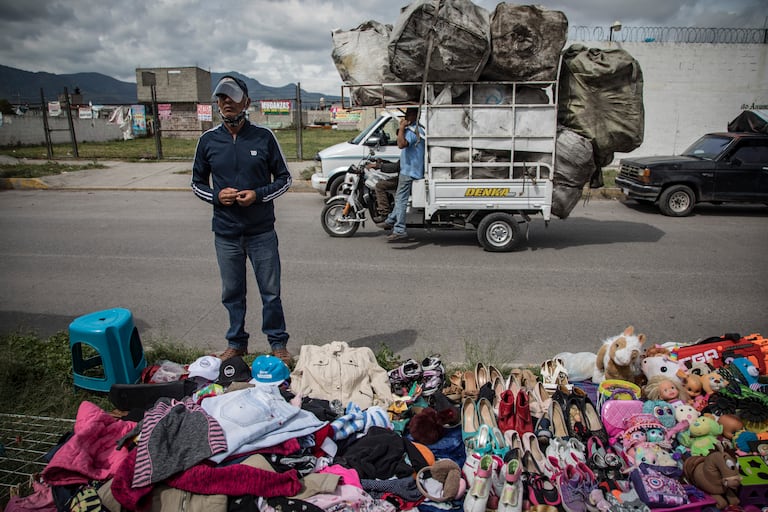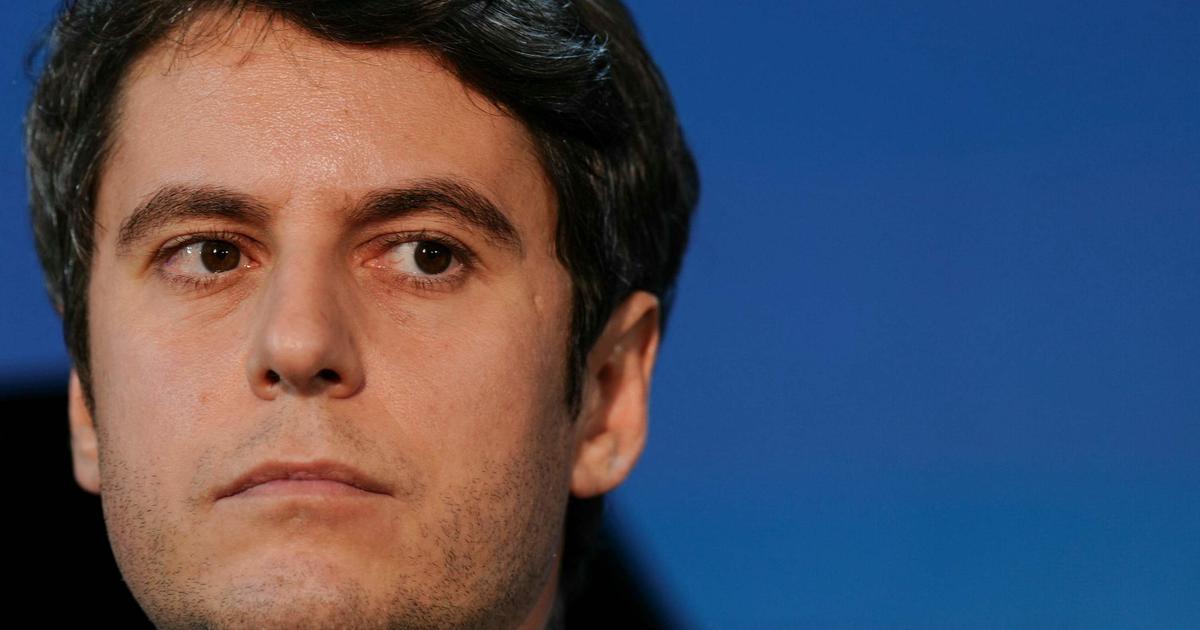Vendors in a street market in Mexico City, in August.Nayeli Cruz / El País
Judging by the activity in the Mexican capital, the country's economy is picking up.
Street stalls and small businesses are back.
The traffic does not yield and in the supermarkets the flow of customers seems, again, heavy.
But in the closed stores and businesses, those that could no longer open after the initial lockdown at the beginning of the year, the economic reality of Mexico hides: the recovery is losing traction and the rest of the year will be an uphill road.
The recovery remains partial and Mexico is not close to returning to the levels of production or income seen last year or in 2018. The country has reached a stage in which growth will be slow and the road is difficult, experts agree.
In addition, Mexico faces several risks, among them, the permanent loss of economic activity, as seen in companies and businesses that do not have the financial capacity to reopen.
To this is added the fear of a potential re-outbreak of the covid-19 that toughens the measures and moves towards a scenario closer to confinement than to reopening.
Another factor to consider is the presidential election in the United States.
It is possible that it impacts Mexico more than any other country in the world, due to the commercial, immigration and political ties between the two countries and investors are waiting for the result to bet on Mexico.
In September, 621,000 people joined the economically active population, according to the Institute of Statistics and Geography (INEGI).
Of the 12 million people who, at the beginning of the coronavirus pandemic, lost their source of income, 8.4 have recovered it.
Next week, INEGI plans to report on the Gross Domestic Product (GDP) for the third quarter of the year, as well as a measure of economic activity in August.
The figures are expected to show a rebound, at least when compared to the previous quarter, which saw the hardest drop in its history due to the period of confinement.
During those months, the automotive, construction and mining sectors were reopened and, in most states, businesses, which operate with limited capacity and sanitary restrictions.
So far this year, foreign investors have sold 337,000 million pesos in Mexican government bonds, taking their money out of the country and as part of an exodus of funds from emerging countries from the pandemic.
The markets have taken refuge in less risky instruments, such as, for example, US Treasuries.
Despite the fact that Mexico offers a high interest rate, compared to other emerging and developed economies, in this pandemic, the country has lost its attractiveness.
Many international investment banks have issued recommendations for the purchase of Mexican bonds, says Roberto Iván García, Finamex fund manager, but investment of foreign capital remains on hold.
"I think they are waiting for the result of the elections in the United States to see if they enter the country or not," says García, "they are waiting for that uncertainty to be resolved."
Important amounts in dollars continue to enter Mexico, however.
On October 10, President Andrés Manuel López Obrador pointed to the remittances sent by compatriots in the United States to their families in Mexico, saying that "they are pulling us out of the hole."
These money transfers, assured the president, are the main source of income for the country and are expected to reach 40,000 million dollars by the end of the year.
Loss of business
Small and medium-sized enterprises (SMEs) represent 70% of formal employment in Mexico and the lack of government incentives led many of these to close permanently, explains Jesús Garza, professor at the Tec de Monterrey business school, EGADE and CEO of the financial firm GAMMA.
It is unlikely that businesses that did not have the financial capacity to reopen during the third quarter of the year will do so now, which implies a destruction of the country's production and income.
"This refers to the short term, but perhaps more important is the medium-term recovery and this has to do with gross fixed investment, which is the most important component because it really increases the productive capacity of a country," says Garza on the phone. from Monterrey, “and, well, for the moment, gross fixed investment has been falling for 18 consecutive months because the drop in confidence comes before the pandemic.
The pandemic exacerbated the problem.
The Ministry of Finance estimates that the fall in GDP this year will be 8% and the rebound in 2021 of 4.%, an optimistic forecast, says Garza.
By 2021, the specialist expects the country to grow below the historical average of 2%.
"If more resources are allocated to investment, this can be left open," says Garza.
"Or, if resources are assigned to protect SMEs, then this could change the landscape, but at the moment I see a very slow recovery."
Credit rating agency Fitch warned of this slowdown in a report published on October 14.
"The most recent hard data and survey indicators suggest that the recovery is stabilizing," the report says.
“The service sector faces challenges.
Retail sales registered only a moderate 5.5% increase in July, and services production fell 9% from January ”.
Accommodation and food services has been the most affected sector, Fitch says, with activity 60% lower than in January.
"Consumption growth has slowed since June, reflecting uncertainty about the coronavirus, a slow reopening of the economy and risks to the recovery of the labor market," the report added.
The firm's forecast for the Mexican economy is a contraction of 10.8% in 2020 and growth of 4.4% next year.
Possible outbreaks
A return to the closure of business activities would lead the country from a pause in the recovery to a deterioration.
The cold and the relaxation in distancing measures in Europe led to some outbreaks of covid-19 in some cities in Europe, so restrictions have been re-implemented and Mexico is not exempt from this possibility.
The Ministry of Health warned on October 16 that Nuevo León, Chihuahua and Durango saw important spikes in the cases of covid-19, which is why it recommended that the States "rethink the confinement interventions."
"We have seen how in other countries, they are closing activities again and in just 15 days contagions overflowed, such is the case of Spain, France, Germany, Italy, we do not want that to happen in the City," said the head of The Government of Mexico City, Claudia Sheinbaum, in a video on her social networks the same day, “it is not the time for big parties, it is precisely in these social gatherings where we neglect ourselves and the covid-19 is transmitted with fatal consequences that we already know ”.




/cloudfront-eu-central-1.images.arcpublishing.com/prisa/FL3CETYG4BGOVL2TOXV6OMJUKE.png)




